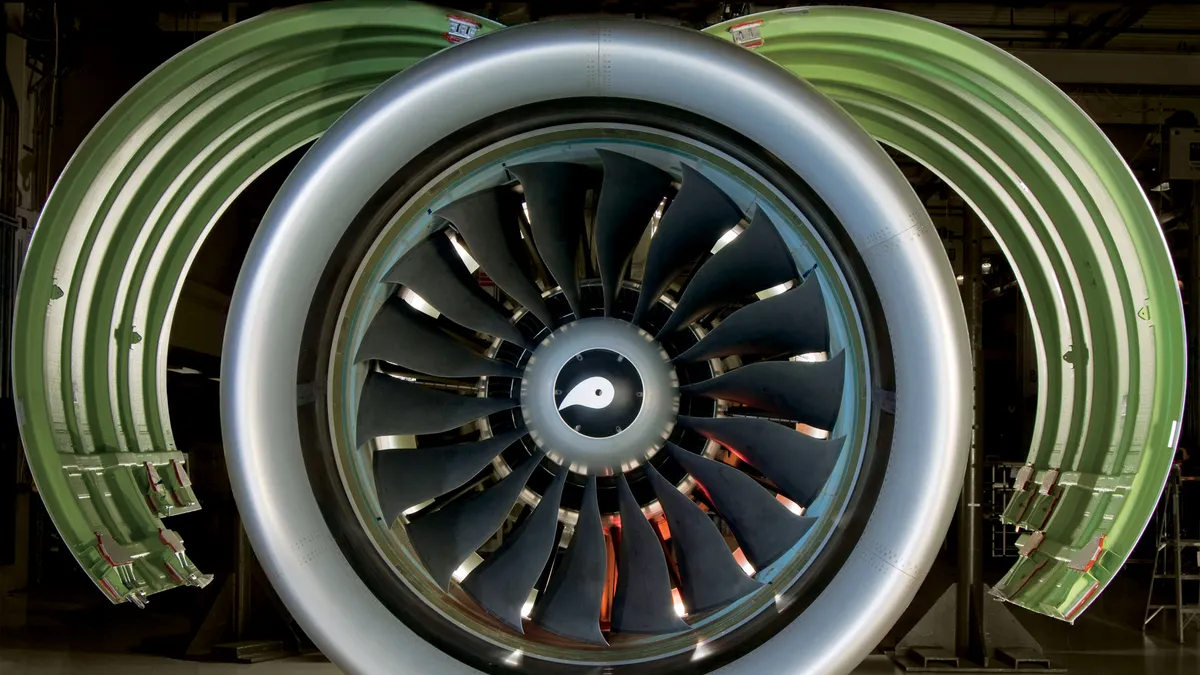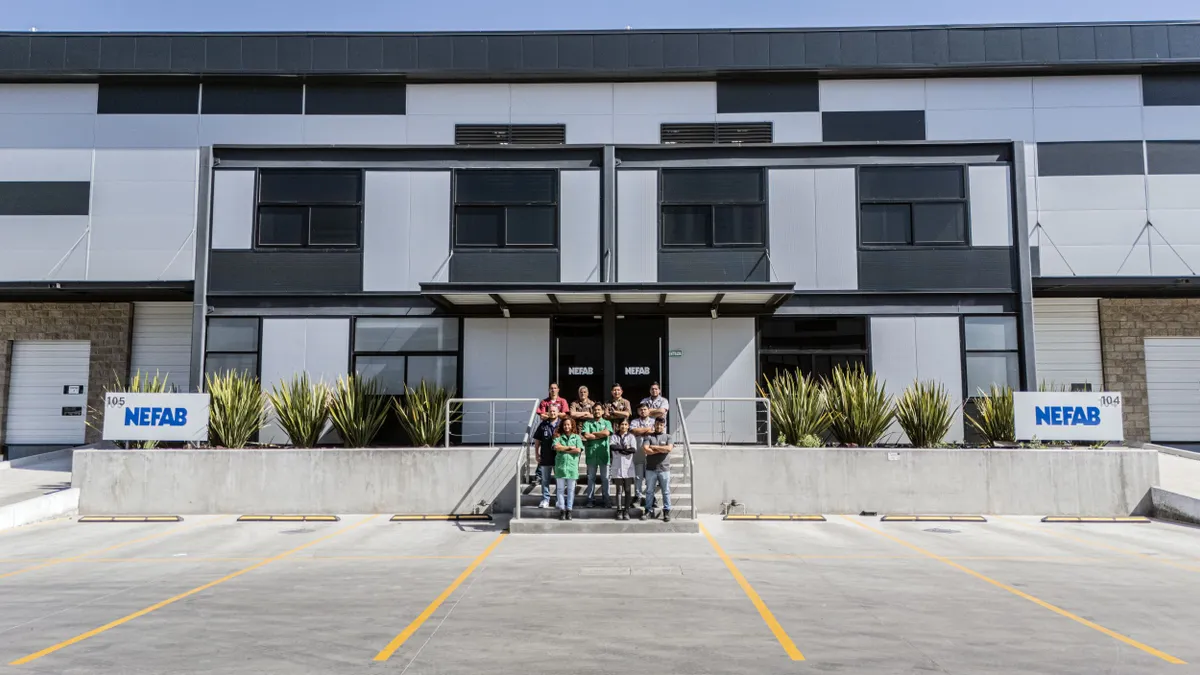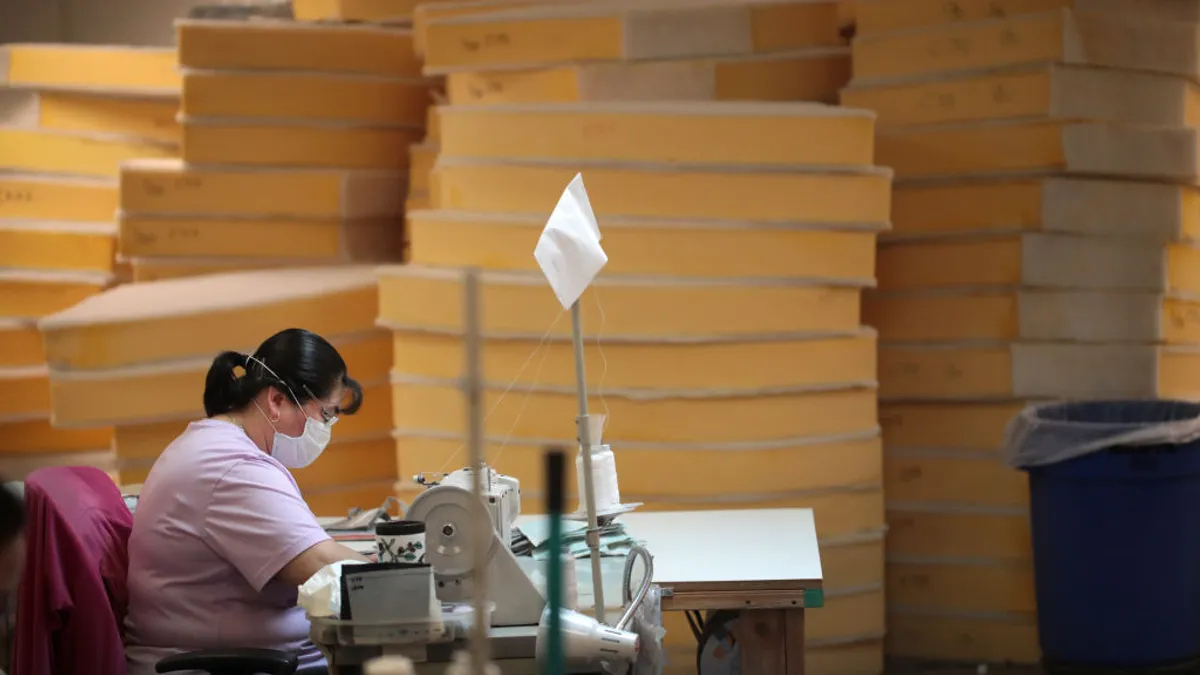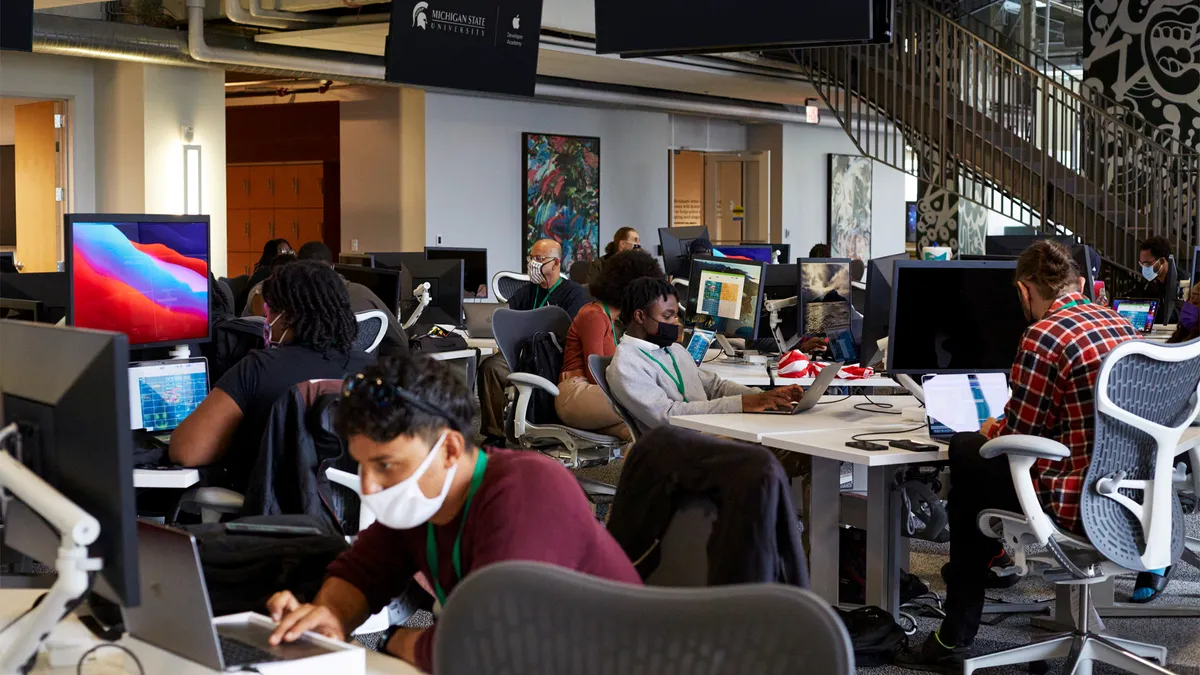The manufacturing workforce shortage looks stark: The National Association of Manufacturers estimates that by 2030, the U.S. will need four million manufacturing jobs, with 2.1 million of those positions going unfilled if the country does not ramp up efforts to recruit new workers.
Fortunately, colleges and universities across the country are working to grow the next generation of the manufacturing workforce by launching new four-year programs and degrees that would create a direct pathway to the industry.
The effort is aided by recent federal legislation like the CHIPS and Science Act and its funding for workforce development initiatives, as well as by private investments in universities from industry leaders like Accenture.
New higher education programs hope to address three overwhelming factors when it comes to the workforce shortage: a lack of access to education and skills, high-tech training and general interest in an industry that has long been perceived as low-paying and dangerous, said Brad Conrad, education and workforce development manager at the National Institute of Standards and Technology.
Perhaps the most dire issue to solve is a dearth of graduates trained in the STEM skills that characterize today’s manufacturing jobs.
“Going from the lab to industry is the valley of death,” Conrad said. “It’s exceptionally hard. These programs are helping industries to be able to do that.”
Here are some of the manufacturing programs that are working to train a new generation of manufacturing professionals.
Old Dominion University
Last year, Old Dominion University announced the launch of Virginia’s first ever 4-year manufacturing program. Offered as part of the school’s Batten College of Engineering and Technology's Engineering and Technology Department, the degree is accessible both as a traditional 4-year program as well as in conjunction with a 2-year associate degree in manufacturing engineering technology.
The program is also part of the Virginia Maritime Industrial Base Consortium's "Talent Pipeline Initiative” to grow the state’s talent base for defense and industrial base employers,
Vukica Jovanovic, professor and chair of ODU’s Engineering Technology Department, said the program addresses a long-standing abundance of positions in the local maritime and shipbuilding ecosystem that will make job placement easier. “We don’t chase recruiters,” said Jovanovic. “They come to us.”
Jovanovic added that the department seeks to attract a large range of students, including adult learners and continuing education students.
University of Alabama
Created as part of the University of Alabama’s Initiative on Manufacturing Development and Education, the school’s Manufacturing Systems Engineering program, which launched last fall, will prepare students for careers in advanced manufacturing systems. Students will have access to the initiative’s manufacturing lab, including tools like robotics and logic controllers, as they navigate classes like computer aided manufacturing and modern manufacturing practices.
Designed in partnership with some of Alabama’s largest manufacturers such as Mercedes-Benz, the program will help usher students from the graduation podium to the manufacturing floor. Courses include the basics of robotics, flexible manufacturing systems and introduction to industrial management.
Los Angeles Pierce College
Los Angeles Pierce College announced two firsts when the community college launched its biotechnology manufacturing program in April 2023. The degree will be the first four-year degree offered at the school.
Jeannine Kunz, chief workforce development officer for the Society of Manufacturing Engineers, said that offering enrollment at the community college level is part of a strategy to help manufacturers explore different avenues for recruiting workers and enticing individuals to enter workplace training programs.
“There's a lot we're trying to do to help manufacturers look at a more diversified way of recruiting and [increasing] enrollment into their programs,” she said.
Funded with a $2 million Community Project Funding grant from the Department of Housing and Urban Development, the program is partnering with external organizations including life sciences research and advocacy group Biocom California Biocom California and regional employers in the sector to prepare students for the workforce.
University of Northern Iowa
Building on existing programs and facilities focused on skills such as metal casting, the University of Northern Iowa will launch two new degrees starting next fall: a bachelor of science in materials science and engineering and a bachelor of science in materials science engineering technology.
The programs were designed in response to the need for manufacturing talent from companies including John Deere, Collins Aerospace and BAE systems. Advanced manufacturing is the largest industry in the state, adding $31 billion a year to Iowa’s economy and employing 225,000 people as of December 2021.
To complement students’ work, the programs will offer paid research projects by funded by agencies such as NASA, the National Science Foundation, the Department of Energy and the Department of Defense.
Purdue University
Indiana-based Purdue University is no newcomer to manufacturing studies. In 2022 it launched a semiconductor degrees program, created in response to the growing need for chip production skills in the U.S.
The suite of degrees and credentials offered at the associate, undergraduate, graduate and doctorate level include access to internships, a virtual lab, and soon, access to a $1.8 billion on-campus fabrication site built in partnership with chipmaker SkyWater Technologies.
The program is one of many offerings to come out of its eXcellence in Manufacturing and Operations Purdue Engineering Initiative launched in May as part of an effort by the school to meet the needs of an evolving industry, said initiative co-chair Ajay Malshe.
“As a land grant university with a tremendous history in manufacturing, we [decided we] should undertake [this] responsibility,” Malshe said. “This new initiative is going to address enrollment, address the new faculty and address the new industrial ecosystem.”



















